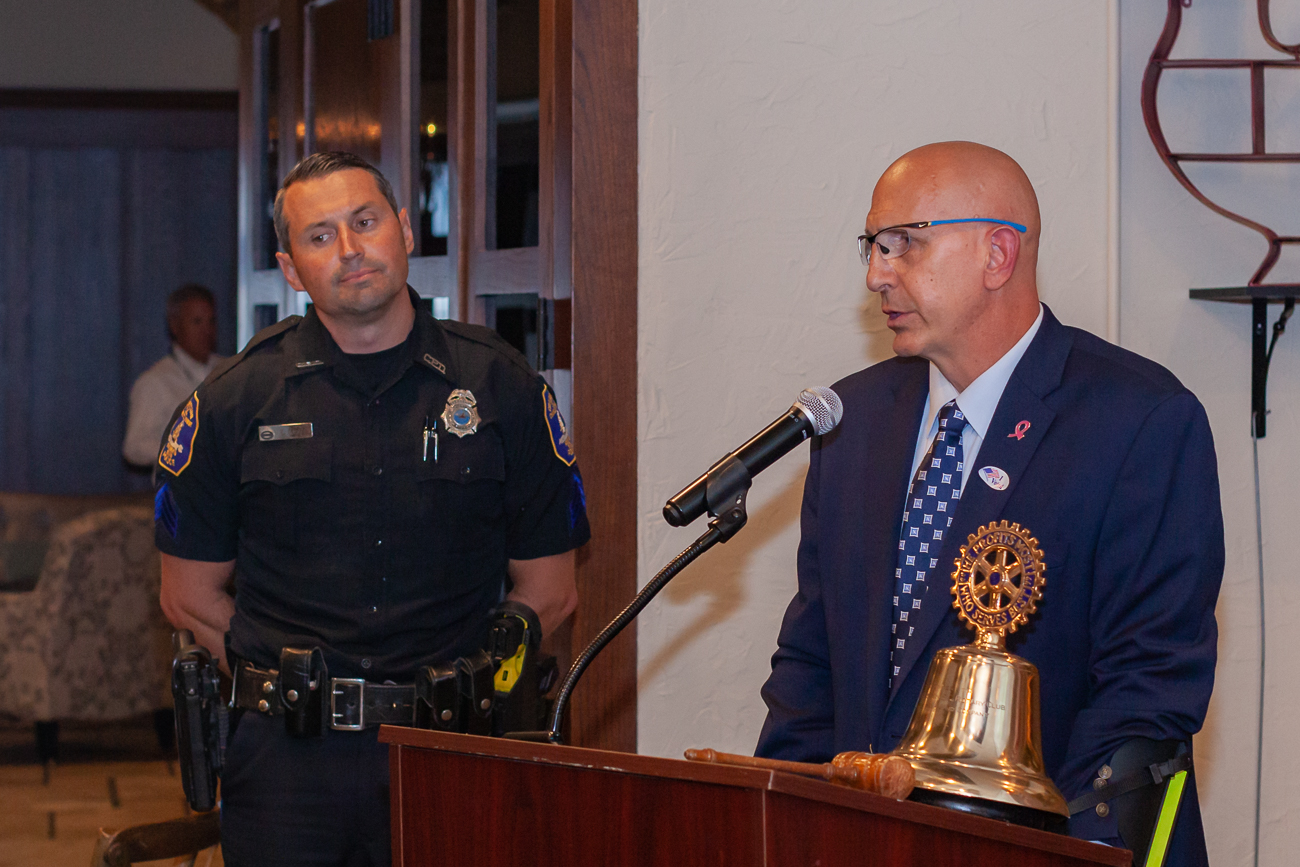The Recession and It’s Impact on Community Banks
March 2, 2010: Robert E. “Chip” Coffee Jr., President and CEO of Tidelands Bank, spoke today regarding the recession and its impact on small banks. Mr. Coffee, a native of Camden, South Carolina and graduate of the Citadel, has been involved in banking along South Carolina’s cost for over 28 years. He began his career in the Management Training program with South Carolina National Bank in 1970 and furthered his banking education by attending The Stonier Graduate School of Banking at Rutgers University and The National Commercial Lending Graduate School at the University of Oklahoma.
Mr. Coffee began his Rotary presentation with reference to the recent Post and Courier article in which Tidelands Bank discussed their recent “informal memorandum of understanding” or MOU, with the South Carolina banking commission and the Federal Deposit Insurance Corporation. In the article, Mr. Coffee stated “the terms of the agreement are ‘mild’ and have no direct impact on the bank’s customers, deposits or day-to-day operations.” He explained the government’s use of “informal” MOU’s have become more common in the past year and noted that Bank of America operates under a MOU. The terms of the MOU agreement require Tidelands to:
* Submit a plan to regulators to increase capital on hand and maintain a key ratio at a minimum of 8 percent of the bank’s total assets, while maintaining its current standing as a “well-capitalized” institution. The ratio in question at Tidelands was at about 6.59 percent at the end of last year.
* Develop specific plans to cut delinquent loans and other troubled assets;
* Implement a strategy to reduce its exposure to commercial real estate loans; and develop a plan to improve liquidity.
To convey the gravity and impact of the past year, Mr. Coffee described the “great recession” as the “most difficult year in my career.” This paradigm shift and emphasis on the capital preservation has forced banks of all sizes to reevaluate their business practices. Mr. Coffee outlined the four categories of banks: Commercial, Large Regional, Shadow and Community, and the important role they play in our economy. Although different in size and role, the underlying theme that “capital is king” reigns true for all banks. With higher capital requirements, banks have two options: (1) raise more capital or (2) shrink bank to achieve an 8% ratio. He explained that the first option is not only very difficult but also produces diluted capital. In addition to capital preservation, Mr. Coffee noted the following critical issues for Community Banks: holding more commercial real estate, the impact of 2009 real estate drops, “Under water” mortgages, deposit premiums, liquidity improvement, and working with regulators.
On a national level, Mr. Coffee discussed the critical issue of job loss and surviving a “consumer-less recovery.” Without the creation of new jobs and security of current employment, our nation faces an uphill battle against recovery and return to normalcy. As our nation and local communities struggle to survive the current economic conditions, our banks struggle to comply with new regulatory standards while maintaining and attracting new customers. Mr. Coffee closing remarks convey the complexity of today’s banking and its regulatory practices: “We used to say ‘it’s not rocket science’ but I swear it’s getting close to rocket science!”
Reported by Teal Van Saun, Keyway Committee


